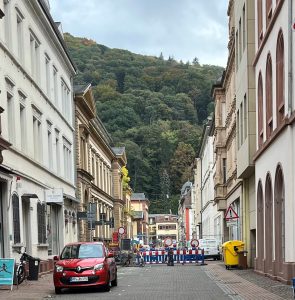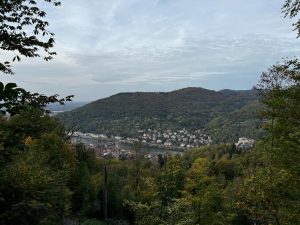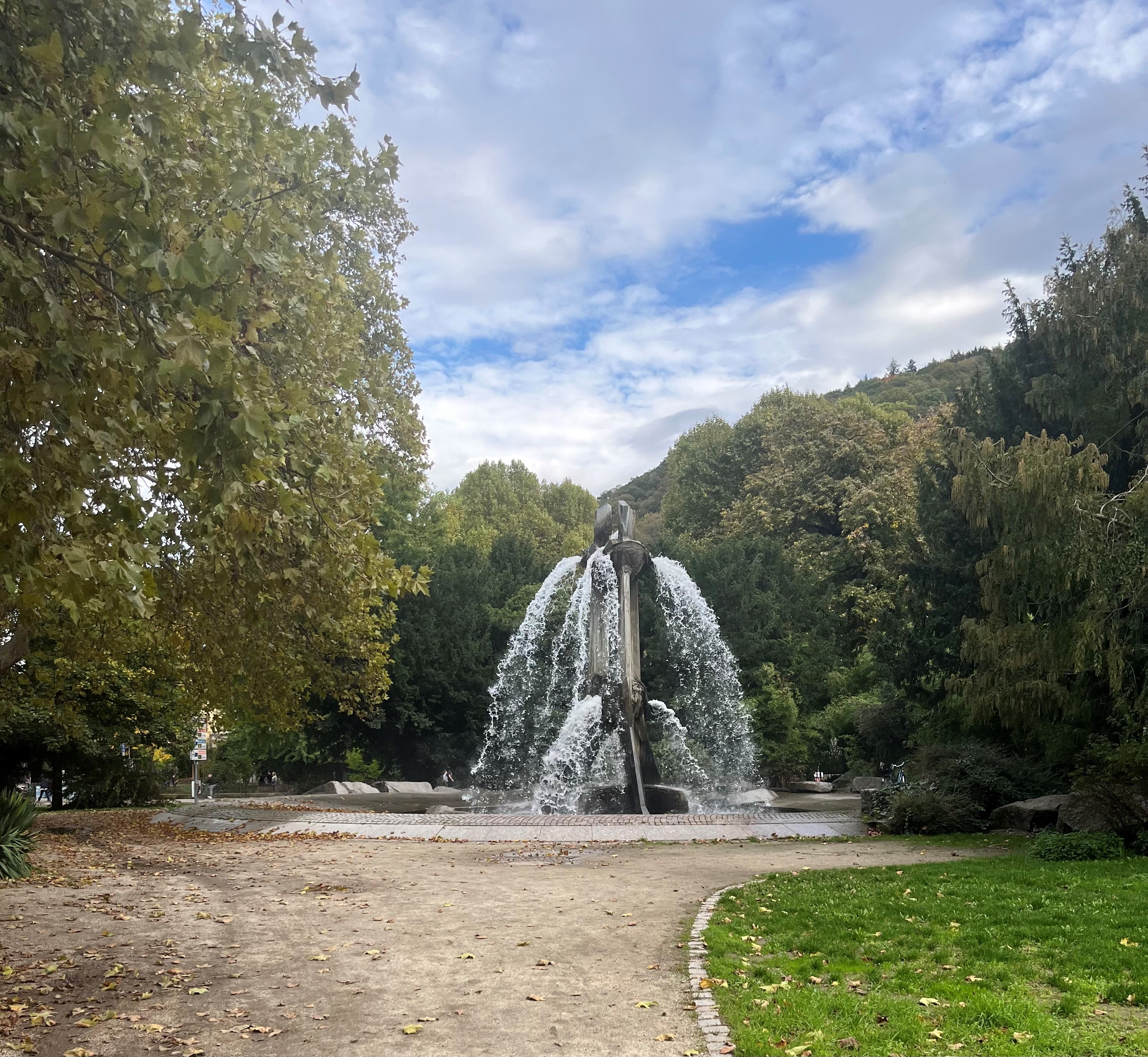
Where the protest took place
Hallo und willkommen zurück zum Blog!
Ich möchte diesen Monat ein ernsteres Thema diskutieren – die Klimakrise. Am Valentinstag sah ich zu, wie sich drei Demonstranten der Aktivistengruppe „Letzten Generation“ an einer stark befahrenen Straße im Zentrum Heidelbergs festklebten. Obwohl sie schließlich von Polizei und Rettungsdiensten entfernt wurden, wurden ihre Forderungen deutlich gemacht. Sie wollten mit ihren Aktionen ihrer Forderung nach einer entschiedeneren Bekämpfung des Klimawandels Nachdruck verleihen.
Die Letzte Generation ist eine Gruppe von Klimaaktivisten in Deutschland und Österreich. Die Gruppe wurde 2021 aus Teilnehmern des Hungerstreiks der letzten Generation gebildet. Die Gruppe zielt darauf ab, durch zivilen Ungehorsams Maßnahmen der deutschen und der österreichischen Bundesregierung gegen die Klimakrise zu erzwingen. Seit Monaten blockieren sie deutschlandweit immer wieder Straßen und Autobahnen und fordert einen „Stopp des fossilen Wahnsinns“. Ich habe zum Beispiel im Januar von einem ähnlichen Protest in Mannheim gelesen, wo Demonstranten sich auf die Straße geklebt haben. Sie hatten ein Banner, das die beiden aktuellen Ziele der Gruppe angibt: „100 km/h und 9 Euro für alle.“

View of Heidelberg
Ich denke, dass diese Ziele sehr praktisch sind und könnten die Klimasituation in Deutschland und auch in der Welt drastisch verbessern. Das erste bedeutet, ein Tempolimit von 100 km/h auf deutschen Autobahnen, die jährlich mehr als 6,7 Millionen Tonnen CO2 vermeiden würde. Ich finde es sehr überraschend, dass es in einige Orte in Deutschland überhaupt keine Tempolimit gibt, im Vergleich zu Großbritannien, wo die nationale Tempolimit auf Autobahnen 70 km/h beträgt. Das zweite Ziel ist ein dauerhaftes 9-Euro-Ticket. Ich finde das eine großartige Idee, da öffentliche Verkehrsmittel sehr teuer sein können (zum Beispiel kostet eine durchschnittliche Monatsfahrkarte in Heidelberg 75 Euro). Dies wäre auch eine gute Idee in Großbritannien, wo die Transportkosten ebenfalls steigen (insbesondere in meiner Heimatstadt London!). Günstigere öffentliche Verkehrsmittel helfen, co2-emissionen zu reduzieren.
Insgesamt bewundere ich die letzte Generation für ihre mutigen Taktiken und es war interessant zu sehen, wie sich Klimaaktivisten in Deutschland im Vergleich zu Großbritannien unterscheiden.
Danke für lesen! Bis zum nächsten Mal!
Lorna
—————————————————————————————————————————
Hello and welcome back to the blog!
I want to discuss a more serious topic this month – the climate crisis. On Valentine’s Day, I watched as 3 demonstrators from the ‘Last Generation’ activist group glued themselves to a busy street in central Heidelberg. Although they were eventually removed by police and emergency services, their demands were made clear. They wanted to call for a more decisive fight against climate change.
 The ‘Last Generation’ is a group of climate activists based in Germany and Austria. The group was formed in 2021 from participants of the ‘Last Generation Hunger strike’ which took place during the federal elections. The group aims to force the German and Austrian federal governments to act against the climate crisis by using civil disobedience. For the last several months they have been blocking roads and motorways across Germany and calling for a “stop to the fossil madness”. For example, I read in January about a similar protest in Mannheim, where demonstrators also glued themselves to the street. They had a banner stating the group’s two current goals: “100 km/h and 9 euros for all.”
The ‘Last Generation’ is a group of climate activists based in Germany and Austria. The group was formed in 2021 from participants of the ‘Last Generation Hunger strike’ which took place during the federal elections. The group aims to force the German and Austrian federal governments to act against the climate crisis by using civil disobedience. For the last several months they have been blocking roads and motorways across Germany and calling for a “stop to the fossil madness”. For example, I read in January about a similar protest in Mannheim, where demonstrators also glued themselves to the street. They had a banner stating the group’s two current goals: “100 km/h and 9 euros for all.”
I think that these goals are very practical and could drastically improve the climate situation in both Germany and the wider world. The first aim refers to implementing a speed limit of 100 km/h on German motorways which would cut CO2 emissions by more than 6.7 million tons annually. I found it very surprising to learn that in some parts of Germany there is no speed limit, especially when compared to the UK which has a national speed limit of 70km/h on motorways. The second goal is to implement a permanent 9-euro public transport ticket. I think this is a great idea as public transport can be very expensive (e.g. an average monthly pass in Heidelberg costs around 75 euros). This would also be a great idea in the UK where transport costs are also rapidly increasing (especially in my hometown of London!). Cheaper public transport helps to reduce CO2 emissions.
Overall, I admire the ‘Last Generation’ for their bold tactics, and it was interesting to see comparisons and differences between UK and German climate activists.
Thanks for reading! Until next time!
Lorna
